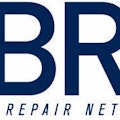ASA concerned with NHTSA’s proposed airbag inspection, repair options
The National Highway Traffic Safety Administration (NHTSA) held a press conference Oct. 10 to issue a warning against airbags that were replaced in the past three years, stating they may have counterfeit systems that won’t function properly.
NHTSA said the airbags look identical to certified, original equipment parts, but testing has shown malfunctioning ranging from non-deployment of the airbag to the expulsion of metal shrapnel during deployment.
Like this article? Sign up to receive our weekly news blasts here.NHTSA identified vehicle makes and models it believes may contain these airbags, and believes they affect less than 0.1 percent of the U.S. vehicle fleet. NHTSA noted that vehicles that have had an airbag replaced within the past three years by a repair shop that is not part of a new car dealership may be at risk.
NHTSA suggests that consumers whose vehicles have been in a crash and had the airbags replaced within the past three years by a repair shop that is not part of a new car dealership, or who have purchased a replacement airbag online, should contact a call center connected to their auto manufacturer to have their vehicle inspected and the airbag replaced if necessary.
“Although NHTSA does a good job highlighting the need for consumers to be vigilant about counterfeit airbags and to contact their automobile manufacturer with questions, they are not as clear as to inspection and repair options for consumers. Independent shops are more prevalent in the collision marketplace and should be included in any NHTSA consumer recommendations for inspection and repair. In addition, it is not at all easy to discern whether automotive manufacturers or insurers will pay for these inspections and repairs. These are important consumer questions that will have to be answered,” said Bob Redding, ASA’s Washington, D.C., representative.
NHTSA has been working with government agencies, including the U.S. Immigration and Customs Enforcement, U.S. Customs and Border Protection and the Intellectual Property Rights Division of the U.S. Department of Justice, to better understand the issue of counterfeit airbags and how to prevent them from being purchased and installed in vehicles.
NHTSA is currently gathering information from automakers about their systems for verifying the authenticity of replacement parts and is working with the industry to make the driving public aware of the potential safety risk posed by counterfeit airbags. It has also posted to its website (www.nhtsa.gov) a list of vehicles for which counterfeit airbags may be available.
For additional information go to www.ASAshop.org, or visit ASA’s legislative website at www.TakingTheHill.com.
About the Author
